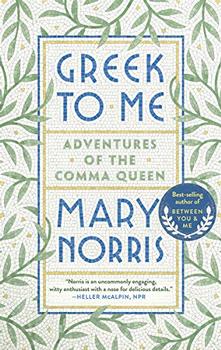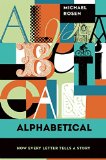Summary | Excerpt | Reviews | Beyond the book | Read-Alikes | Genres & Themes | Author Bio

Why the World Looks Different in Other Languages
by Guy DeutscherA masterpiece of linguistics scholarship, at once erudite and entertaining, confronts the thorny question of how—and whether—culture shapes language and language, culture.
Linguistics has long shied away from claiming any link between a language and the culture of its speakers: too much simplistic (even bigoted) chatter about the romance of Italian and the goose-stepping orderliness of German has made serious thinkers wary of the entire subject. But now, acclaimed linguist Guy Deutscher has dared to reopen the issue. Can culture influence language—and vice versa? Can different languages lead their speakers to different thoughts? Could our experience of the world depend on whether our language has a word for "blue"?
Challenging the consensus that the fundaments of language are hard-wired in our genes and thus universal, Deutscher argues that the answer to all these questions is—yes. In thrilling fashion, he takes us from Homer to Darwin, from Yale to the Amazon, from how to name the rainbow to why Russian water—a "she"—becomes a "he" once you dip a tea bag into her, demonstrating that language does in fact reflect culture in ways that are anything but trivial. Audacious, delightful, and field-changing, Through the Language Glass is a classic of intellectual discovery.
How does our mother tongue (Why don't we call it a "father tongue," I wonder?) shape what we see and what we don't see; how we orient ourselves in space and time; and the associations we attach to people, animals, ideas and objects? Why do some people describe the sky as black, not blue? And what exactly did Homer mean when he said "wine-dark sea"? Through the Language Glass is Guy Deutscher's exuberant and very excellent adventure among competing ideas, theories and scientific experiments to find the answers... with a gift for wordplay and a joyful scholarliness, [he] amazes the reader with the richness of linguistic variation and the refinement and inventiveness possible to human imagination and experience...continued
Full Review
 (700 words)
(700 words)
(Reviewed by Jo Perry).
 Deutscher has much to say about the color "blue": its presence or absence in a language or culture, its sister-color, "green" with which it combines as a single hue in some languages, and notes that it is the color most difficult for children to learn.
Deutscher has much to say about the color "blue": its presence or absence in a language or culture, its sister-color, "green" with which it combines as a single hue in some languages, and notes that it is the color most difficult for children to learn.
Did you know?

If you liked Through the Language Glass, try these:

by Mary Norris
Published 2020
The Comma Queen returns with a buoyant book about language, love, and the wine-dark sea.

by Michael Rosen
Published 2016
Michael Rosen takes you on an unforgettable adventure through the history of the alphabet in twenty-six vivid chapters, fizzing with personal anecdotes and fascinating facts